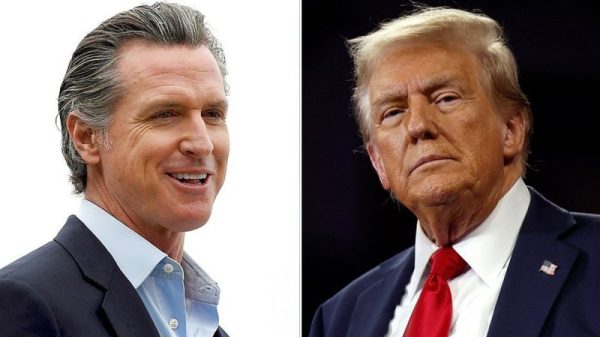Republicans’ push to impeach President Biden has now suffered its most significant setback, after a long succession of shortcomings, contradictions and failures to connect the dots. An informant whose account of bribes was hailed by impeachment leaders as “very crucial” last year and “the most corroborating evidence we have” as recently as last month was indicted on a charge of allegedly lying about his claims.
The Republican Party has spent the past 24 hours trying to put lipstick on that pig, suddenly pivoting to downplaying the significance of the informant.
But when you dig deeper into how Americans view this process, it becomes pretty clear that this has been a losing battle for a while — not just on the substance, but politically. The fact that Republicans relied on such thin and unsubstantiated evidence betrays how little they’re working with. And while this last development might seal the deal, it was already failing to penetrate.
Which might explain why Republicans, even before Alexander Smirnov’s indictment last week, appeared to be getting cold feet about actually impeaching Biden.
Here are a few telling stats on that failure to penetrate.
Republicans began their formal impeachment inquiry in September. But to date, it doesn’t appear to have grabbed the collective consciousness of the country.
A Pew Research Center poll last month showed just 16 percent of Americans were following the inquiry at least “very closely.” A clear majority were following it “not too closely” or “not at all.”
By contrast, high-quality polling during Donald Trump’s first impeachment inquiry showed as many as a majority of Americans said they were following the matter “very closely.” And those saying they were following it “not too closely” or “not at all” never eclipsed 40 percent.
If the goal is just to attach the I-word to Biden and perhaps inject some suspicion, then perhaps they’ve gotten traction. But Americans just haven’t really been drawn in.
That contrast is also there when it comes to whether Americans perceive there being grounds for impeachment.
The Pew poll last month showed just 28 percent of Americans said there were “definitely” grounds to impeach Biden. Even Republican-leaning voters were far from completely sold; 55 percent said there were “definitely” grounds for impeachment.
Those numbers were far higher during Trump’s impeachments — both overall and in the impeaching party.
As Democrats were voting to formalize their first Trump inquiry in October 2019, Pew showed 40 percent said there were “definitely” grounds to impeach. And 70 percent of Democratic-leaning Americans agreed.
Monmouth University asked similar questions after both of Trump’s actual impeachments. After the first one, 46 percent said there were “definitely” grounds to impeach. After the second, post-Jan. 6 one, 53 percent said there were.
That was later in the process, but it was nearly twice the number who now say in the Pew poll that Biden’s conduct is impeachable.
And the fact that just 28 percent say Biden’s conduct is “definitely” impeachable doesn’t comport with the GOP’s past claims of a “smoking gun” and “the biggest political corruption scandal [in] the past 100 years.”
While Americans are broadly willing to hear out the House on its impeachment process — the country is generally about evenly split on whether the inquiry is warranted — they are far from convinced Biden should be removed from office.
A Reuters/Ipsos poll last month showed just 21 percent overall and just 43 percent of Republicans said they “strongly” agreed Biden should be removed from office “for benefiting from his son Hunter Biden’s foreign business dealings when he served as vice president.”
Pollsters asked similar questions about Trump during his first impeachment. And despite that impeachment having less support than Trump’s second impeachment, many more “strongly” supported his removal:
April 2019 (CNN): 34 percentMay 2019 (CNN): 36 percentNovember 2019 (CNN): 46 percentJanuary 2020 (AP-NORC): 42 percentJanuary 2020 (Washington Post-ABC News): 38 percentJanuary 2020 (NBC News poll): 42 percent
The first two bulleted polls above predate the actual impeachment inquiry. So once it got off the ground, strong support for Trump’s removal was about twice where it is with Biden today in the Reuters poll.
If anything shows how the American people just aren’t clamoring for this, that’s probably it.


































